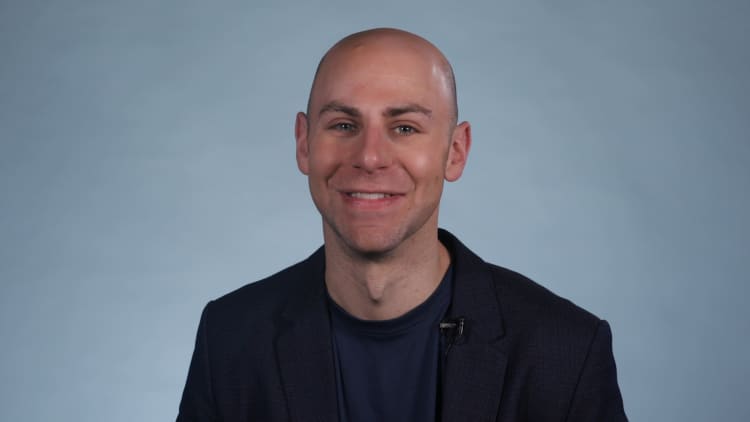Wharton professor and organizational psychologist Adam Grant is an expert in the science behind a fulfilling career.
In addition to his work as a Saul P. Steinberg Professor of Management at The University of Pennsylvania's Wharton School, he's written three New York Times bestselling books on workplace culture and psychology, and he's the host of "WorkLife," a podcast produced by TED.
Over his career, Grant has heard a lot of advice given to young people. And even if it's pervasive, not all conventional wisdom is helpful, Grant tells CNBC Make It.
The worst career advice? Planning your career in advance.
"It's a terrible idea, because the world is changing way too fast to know today what opportunities will exist in four or five years," Grant explains. "I think that so often, people get locked into one direction long before they have any clue what's out there, and long before the most interesting opportunities even exist."
To explain the idea, Grant points to billionaire Facebook executive Sheryl Sandberg, with whom he co-authored "Option B." Today, she's Facebook's chief operating officer, but when she was just starting her career, social media didn't even exist.
"Mark Zuckerberg was only 7 years old when I graduated from college," Sandberg writes in "Lean In." And in the early 1990s as a student at Harvard University, Sandberg wasn't particularly tech savvy.
"I used Harvard's computer system only once as an undergraduate, to run regressions for my senior thesis on the economics of spousal abuse," she writes in the book. "The data was stored on large, heavy magnetic tapes that I had to lug in big boxes across campus, cursing the entire way and arriving in a sweaty mess at the sole computer center which was populated exclusively with male student. I then had to stay up all night spinning the tapes to input the data."
Then, the system crashed.
"That's right. Years before Mark [Zuckerberg] famously crashed that same Harvard system, I beat him to it," Sandberg remembers. So, if she had planned out her career in its entirety after graduating college, she likely wouldn't have considered a high tech route.
"I could never have connected the dots from where I started to where I am today," Sandberg explains. She agrees with Grant, making a concrete plan isn't a good idea. But you should keep some focus in sight.
"While I don't believe in mapping out each step of a career, I do believe it helps to have a long-term dream or goal," she writes. Looking for the right career "requires both focus and flexibility, so I recommend adopting two concurrent goals: a long-term dream and an eighteen-month plan."
Grant suggests a similar tact to CNBC Make It: "You should start by figuring out what skills you want to learn or who you want to learn from, and go to the organization that will best prepare you for that," he says. "Then stay until you feel like you're not learning anymore."
And, always keep your eyes open for new opportunities.
Don't miss:
Like this story? Subscribe to CNBC Make It on YouTube!



